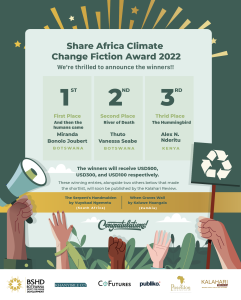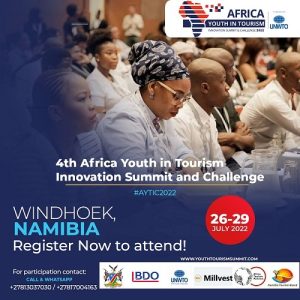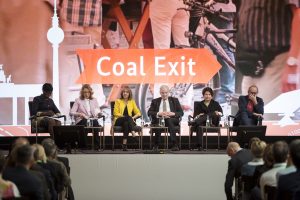SADC Energy and Water Joint Ministerial Workshop
Outcome Statement
The Joint Ministerial Workshop on Energy and Water held in Gaborone, Botswana on the 20th June 2016. The Workshop was officially opened by the H.E. Lt. Gen. Dr. Seretse Khama Ian Khama, the President of the Republic of Botswana and the Chairperson of SADC. In his keynote address, His Excellency raised the following issues which were to be discussed:
How does the SADC Region address the impacts of the current drought on the energy and water sectors?
How can the SADC Region comprehensively address the energy and water insecurity of the Region? What are the immediate and short term remedies?
Why does the SADC Region continue to find itself unprepared for these extreme events? How can the SADC Region best plan for resilience?
How can the SADC Region shift to cleaner energy technologies bearing in mind that those nations who had or are using cleaner energy technologies seem worst hit by drought events? What role can inter-basin water transfers play?
How do the impacts of drought on the energy and water sectors affect food security in the Region?
How the Region through the Member States can scale-up the implementation of infrastructure projects underpinned by innovative funding methodologies?
The objective of the workshop was to facilitate exchange of ideas and forge practical and sustainable solutions in addressing energy and water challenges in the Region with a view to map out a strategic direction and agree on a way forward. After deliberations, the Workshop came with the following Outcome Statements:
1. Promoting Regional Energy and Water Security
Challenge
The workshop observed that some of the challenges which are contributing to energy insecurity in the region are the focus on national self-sufficiency by Member States which leads to stretching the little resources and yield minimum generation capacities. As a result, Member States are not taking full advantage of the power trading avenues that offer the benefits of economies of scale.
On a similar note, Riparian States sharing a river basinare still inward looking and aiming at building national dams to meet their national needs which tend to be very expensive and create some competition within the river basin.
Recommendation
The workshop concluded that in order to have a water and Energy secure region, joint investments on strategic water and energy projects is a must. For example, Grand Inga hydropower project in the Congo basin would immediately contribute towards the regional energy supply if implemented.
Similarly, for the water sector, the Secretariat should as a matter of urgency initiate a study on transferring water from the water rich basins to the water stressed parts of the region expeditiously, through inter/intra basin transfers.
2. Enhance Inter-sectoral Coordination
Challenge
The workshop observed that there is a strong tendency of sectors to work in silos especially Energy, Water and Food producing sectors and yet they are interdependent. For example, water is needed in the generation of hydropower, cooling of thermal power stations as well as in irrigation for food production. Similarly Energy is required in pumping water to where it is needed including pressurising water in irrigation systems.
Recommendation
The workshop encouraged Member States and the Secretariat to ensure that the Energy, Water and Food Security sector, plan and work jointly following the nexus approach and avoid sectoral silos in order to maximise the benefits and accelerate delivery.There are a number of projects and interventions in the region which were not viable until nexus approach was employed.
3. IntensifyDemand Side Management Strategies
Challenge
Inadequate consumer education on efficient usage of both energy and water is one of the main courses for water and energy shortages. This results in usage of low efficient energy and unaccounted for water losses as well as inefficient methodologies and appliances. This has denied the region the opportunity of enjoying surplus water and power.
Recommendations
The workshop recommended that as a matter of urgency, Member States should embark on intensive energy and water demand side management strategies which combine use of high efficiency technologies, methodologies and better awareness creation. In particular the following issues should be addressed:
a) restrict the use of incandescent lamps due to their high inefficiency and the fluorescent lights due to their inherent poor disposal mechanisms that causes mercury poisoning;
b) implement incentives that encourage efficient energy and water appliances;
c) enact legislations that promote or obligate households to include solar geysers as an integral part of the house plan. For example, installation of solar water heating appliances can easily drop household electricity bill by 40% or more;and
d) depending on the status of water supply in each country, introduce rationing measures that discourage wasteful use of water for various uses including irrigation. Where appropriate restrict furrow irrigation due to its high inefficiency.
4. Promoting Optimal Energy Mix and Conjunctive Use Groundwater and Surface Water
Challenge
Although the region is blessed with vast potential for hydro-power, solar power, wind power, coal and gas, it is experiencing energy insecurity due to poor investment in these energy sources. Water insecurity is also high and yet still more water is flowing to the ocean without being stored. Water availability varies in space and in time across the region. Very little investment has been done in addressing the misnomer.
Recommendation
The workshop encouraged Member States to promote and invest in alternative energy sources for powergeneration such as hydro, solar and wind power includingcoal and gas using appropriate and efficient technologies therebypromotingoptimalenergy mix.On the water side, Member States should invest more in rainwater harvesting, recycling,and desalination depending on the circumstance and should promote conjunctive use of groundwater and surface water.
5. Accelerate Implementation of Priority Energy and Water Projects in the Regional Infrastructure Development Master Plan (RIDMP),
Challenge
It was noted that the implementation of priority Energy and Water projects listed in the Regional Infrastructure Development Master Plan is moving at a slow pace yet the region is engulfed with acute shortages of both water and energy access which limits development in the region.
Recommendation
The workshop encouraged Member States and SADC Secretariat to accelerate efforts to prepare bankable water and energy infrastructure projects as well as implementation of these priority infrastructure projects for hydropower and multi-purpose dams as identified in the Regional Infrastructure Development Master Plan in order to accelerate regional industrialisation. The proposed industrialisation drive will assist Member States in generating financial resources for implementation and maintenance of infrastructure. Furthermore, Member States have to allocate budgetary resources for rehabilitation and maintenance;
6. Complete Regional Connectivity for Power Trading
Challenge
Though the Southern African Power Pool (SAPP) was established more than 20 years ago, threemainland SADC Member States are still not connected. This has deprived those countries from participating in the SAPP regional power trading. The workshop noted the regional connectivity will enhance sharing of energy resources among all SADC Member States.
Recommendation
The Workshop encourage the remaining Member States who are not connected in the Southern African Power Pool (SAPP) transmission networkto accelerate the respective on-going interconnector projects to enable them to benefit fromtrading among the Member States.
7. IncreaseInvestment and Utilisation of Renewable Energy Sources
Challenge
It was observed that though there are abundantrenewable energyresources in the Region. In order to harness these resources,it requires huge capital investment tokick start the process. It was further observed that such alternative energy sources occur closer to the people thus may not need grid connection except for isolatedmini grids.
Recommendations
The workshop recommended that Member States should provide incentives that promotethe renewable energy investments which may lower capital expenditure. It is also recommended that Member States should explore other options such as competitive bidding to facilitatedevelopment of renewable energy projects.
8. Access of Funding Opportunities Challenges for Infrastructure Projects
Challenge
The Workshop noted that there are challenges with the current financing mechanisms for infrastructure projects, that require conclusion of power purchase agreements;In addition there is currently poor access to the Climate Change and related funds by Member States. These funds could help Member States to build their resilience in terms of addressing the impact of extreme weather events on Water and Energy.
Recommendation
The Workshop recommendedthat innovative funding mechanisms should be identified to effectively finance implementation of infrastructure projects.The workshop also called for intensification of ongoing efforts to developregional funding mechanisms to support Member States’ efforts to fund energy andwater projects as well asto improve resilience of SADC communities against impact of Climate Change and variability.
9. Improve Capacity Building, Training and Research
Challenge:
The Workshop noted that one of the challenges to achieve sustainability of programmes and projects and improved access to water and energy services is limited training, research and innovation.
Recommendation
Establish centers of excellence and strengthen existing ones to undertake research and training to improve capacity for maintenance and operation of systems as well as job creation.





